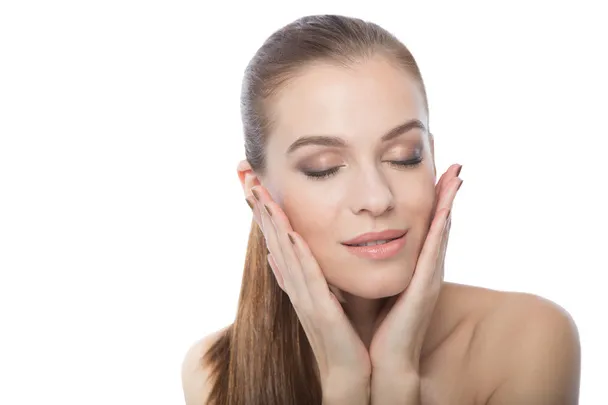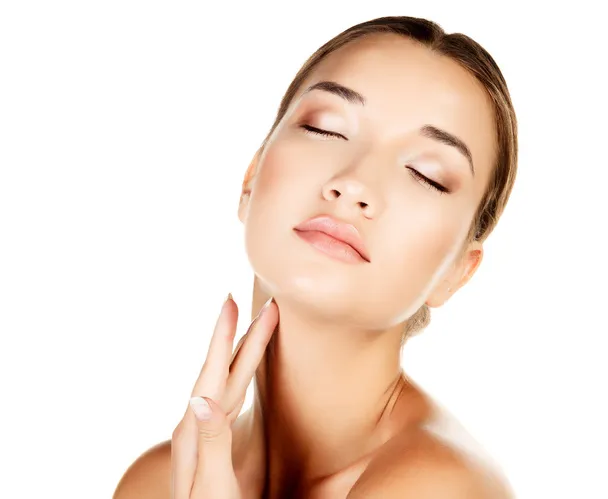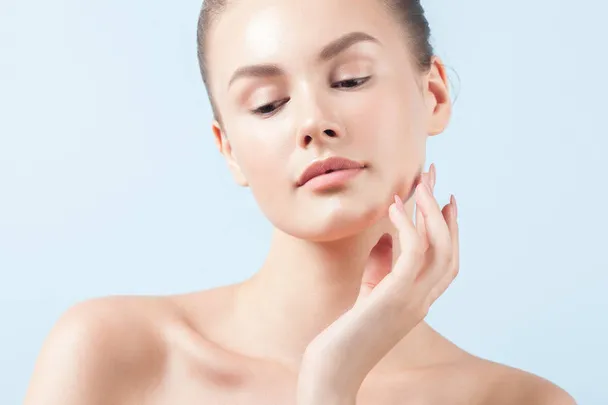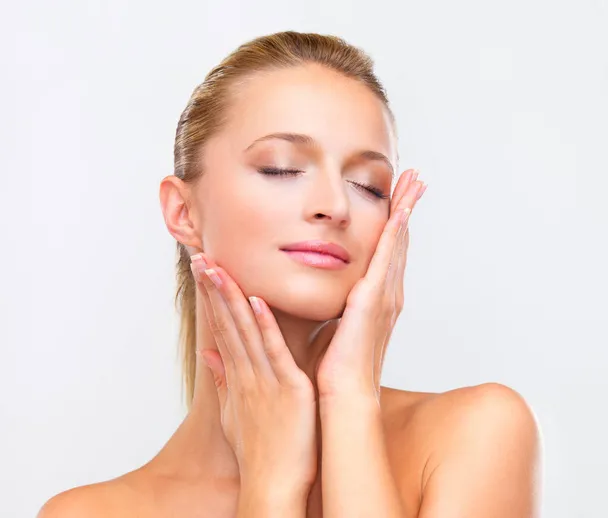Daily Skincare Routine: Step-by-Step Guide for Healthy Skin
A consistent daily skincare routine is essential for maintaining healthy and radiant skin. By following a simple yet effective regimen tailored to your skin type and concerns, you can address specific issues while promoting overall skin health. Below is a step-by-step guide to help you establish and maintain a daily skincare routine that works for you.
Know Your Skin Type:
Understanding your skin type is the cornerstone of an effective skincare routine. Each person’s skin is unique, and identifying your specific skin type is essential for selecting the right products and treatments that cater to your individual needs. There are four main skin types: oily, dry, combination, and sensitive.
Oily skin is characterized by excess sebum production, which can lead to a shiny complexion and enlarged pores. Individuals with oily skin may be prone to acne breakouts and blackheads due to clogged pores.
Dry skin lacks moisture and often feels tight, rough, or flaky. It may appear dull and be more prone to fine lines and irritation. Proper hydration is crucial for managing dry skin and restoring its natural barrier function.
Combination skin presents a mix of oily and dry areas, typically with an oily T-zone (forehead, nose, and chin) and drier cheeks. Balancing the needs of both zones can be challenging but achievable with the right approach.
Sensitive skin is prone to reactions such as redness, itching, or irritation, often triggered by environmental factors or certain skincare products. It requires gentle, soothing ingredients to avoid exacerbating sensitivity.
Determining your skin type allows you to tailor your skincare routine accordingly. For example, those with oily skin may benefit from oil-free cleansers and lightweight moisturizers, while individuals with dry skin may require richer, more hydrating formulations. By understanding your skin type, you can make informed choices about the products and treatments that will best support your skin’s health and address any concerns you may have.
Cleansing: Cleansing is a foundational step in any skincare routine, serving as the cornerstone of healthy skin. Starting your day with a thorough cleanse helps remove any impurities that may have built up overnight, such as excess oil, sweat, and dead skin cells. By using a gentle, pH-balanced cleanser tailored to your specific skin type, you can effectively remove these impurities without stripping your skin of its natural oils or disrupting its delicate balance.
In the evening, cleansing is equally essential to rid your skin of makeup, sunscreen, and environmental pollutants accumulated throughout the day. These substances can clog pores, leading to breakouts, and interfere with your skin’s natural regeneration process overnight. Therefore, incorporating a double cleansing method, which involves using an oil-based cleanser followed by a water-based cleanser, can ensure a thorough removal of all debris without compromising your skin’s integrity.
When selecting a cleanser, opt for formulas that are free of harsh sulfates, fragrances, and alcohol, as these ingredients can irritate and dry out the skin, particularly for those with sensitive or dry skin types. Instead, look for gentle cleansers enriched with soothing and hydrating ingredients such as aloe vera, glycerin, and hyaluronic acid to cleanse your skin effectively while maintaining its moisture barrier.
Consistency is key when it comes to cleansing, so aim to cleanse your skin twice daily – once in the morning and once in the evening – to keep it clean, refreshed, and ready to absorb the benefits of subsequent skincare products. By making cleansing a priority in your skincare routine, you can lay a solid foundation for healthy, radiant skin.
Exfoliation (1-3 Times a Week): Exfoliation is a crucial step in any skincare routine, offering numerous benefits for the skin. By removing dead skin cells, exfoliation helps unclog pores, prevent acne breakouts, and promote cell turnover, resulting in a smoother and more radiant complexion. The frequency of exfoliation depends on your skin’s sensitivity and tolerance levels. For most individuals, incorporating exfoliation into their routine 1-3 times a week is sufficient to reap its benefits without causing irritation or sensitivity. There are two main types of exfoliants: chemical and physical. Chemical exfoliants, such as alpha hydroxy acids (AHAs) and beta hydroxy acids (BHAs), work by dissolving the bonds between dead skin cells, making it easier for them to slough off. On the other hand, physical exfoliants use abrasive particles or tools to manually buff away dead skin cells. When choosing an exfoliant, opt for one that suits your skin type and concerns, and always follow up with a hydrating moisturizer to replenish lost moisture and maintain skin barrier function. Incorporating exfoliation into your skincare routine can help you achieve smoother, clearer, and more youthful-looking skin over time.
Toning: Toning is an essential step in any skincare routine that can provide numerous benefits for your skin. After cleansing, applying a toner helps to rebalance the skin’s pH levels, which may have been disrupted during the cleansing process. This rebalancing act is crucial for maintaining the skin’s natural protective barrier and overall health. Additionally, toners can help to tighten pores, making them appear smaller and less noticeable. By tightening the skin, toners can also help to reduce the penetration of impurities and environmental toxins, further protecting the skin from damage. Furthermore, toners can remove any leftover impurities that may not have been fully removed during cleansing, ensuring that your skin is thoroughly clean and ready to absorb the next products in your skincare routine. When choosing a toner, opt for alcohol-free formulas that contain hydrating and soothing ingredients such as hyaluronic acid, glycerin, or chamomile extract. These ingredients can help to hydrate and soothe the skin, preventing dryness or irritation often associated with traditional alcohol-based toners. Incorporating a toner into your skincare routine can leave your skin feeling refreshed, balanced, and prepped for optimal product absorption.
Treatment (Serums or Spot Treatments):
Treatment products, such as serums or spot treatments, play a crucial role in addressing specific skin concerns and enhancing the effectiveness of your skincare routine. These targeted treatments are formulated with potent active ingredients designed to tackle various issues such as acne, hyperpigmentation, or signs of aging. For instance, serums containing vitamin C can help brighten the skin and reduce dark spots, while retinol is effective in promoting cell turnover and reducing the appearance of fine lines and wrinkles. Niacinamide, another powerful ingredient, can improve skin texture, minimize pores, and regulate oil production, making it beneficial for those with acne-prone or oily skin. Additionally, hyaluronic acid is renowned for its hydrating properties, effectively replenishing moisture and plumping the skin. When selecting treatment products, it’s essential to consider your specific skincare goals and choose formulations tailored to address your concerns. Incorporating targeted treatments into your routine can yield significant improvements in the overall health and appearance of your skin, helping you achieve a smoother, more radiant complexion.
Moisturizing: Moisturizing is a vital step in any skincare routine, regardless of your skin type. By hydrating your skin with the right moisturizer, you can effectively maintain its hydration levels, strengthen its natural barrier, and prevent moisture loss, ensuring a healthy and radiant complexion. When choosing a moisturizer, opt for a lightweight formula that is non-comedogenic, meaning it won’t clog your pores, and is suitable for your specific skin type. Whether you have oily, dry, combination, or sensitive skin, there are moisturizers formulated to address your unique needs. Applying moisturizer twice daily, in the morning and evening, is essential to keep your skin hydrated and supple throughout the day and night. Focus on areas of your face that are prone to dryness, such as the cheeks or around the eyes, to ensure optimal hydration. Incorporating moisturizing into your skincare routine can help you achieve smooth, soft, and healthy-looking skin, enhancing your overall complexion and confidence.
Sun Protection: Sun protection is essential for maintaining skin health and preventing sun damage. Shield your skin from harmful UV rays by incorporating a broad-spectrum sunscreen into your daily skincare routine. Choose a sunscreen with a sun protection factor (SPF) of 30 or higher to ensure adequate protection against both UVA and UVB rays. Apply sunscreen generously to all exposed areas of your skin, including the face, neck, arms, and any other areas not covered by clothing, every morning before heading outdoors. Additionally, remember to reapply sunscreen every two hours, especially if you’re spending extended periods outside or participating in activities that cause sweating or swimming. By prioritizing sun protection, you can safeguard your skin from premature aging, sunburn, and the risk of skin cancer, maintaining its health and youthful appearance for years to come.
Nighttime Treatment (Optional):
Nighttime treatment is an optional yet beneficial step in your skincare routine, offering an opportunity to address specific skin concerns and promote skin repair and rejuvenation while you sleep. Consider incorporating products like retinol, peptide creams, or hydrating masks into your nighttime regimen to target concerns such as fine lines, wrinkles, uneven skin tone, or dryness. Retinol, a derivative of vitamin A, promotes collagen production and cell turnover, helping to diminish the appearance of wrinkles and improve skin texture. Peptide creams contain amino acids that support skin elasticity and firmness, reducing the signs of aging over time. Additionally, hydrating masks provide intense moisture to nourish and revitalize the skin, leaving it soft, supple, and radiant by morning. By adding these treatments to your nighttime skincare routine, you can maximize the benefits of your beauty sleep and wake up to healthier, more radiant-looking skin.
Hydration (Internal): Maintaining internal hydration is vital for overall skin health. Water plays a crucial role in hydrating skin cells, ensuring they function optimally. When you’re properly hydrated, your skin appears plump, supple, and radiant. Aim to drink an adequate amount of water throughout the day to support your skin’s hydration needs. While the exact amount varies depending on factors like climate, activity level, and individual metabolism, a general guideline is to aim for at least eight glasses of water daily. However, it’s essential to listen to your body’s cues and adjust your water intake accordingly. Incorporating hydrating foods such as fruits and vegetables into your diet can also contribute to your overall hydration levels. Remember, staying hydrated not only benefits your skin but also promotes overall well-being.
Consistency is Key:
Consistency is the cornerstone of any successful skincare journey. It’s not enough to sporadically follow a skincare routine; rather, it requires dedication and regularity to yield noticeable results. By adhering steadfastly to your regimen, you allow the active ingredients in your skincare products to work effectively over time. While it’s natural to desire instant gratification, true transformation takes time and persistence. Patience is key as you wait for the cumulative effects of your skincare efforts to manifest. Remember that skincare is a marathon, not a sprint, and consistent commitment is paramount for achieving and maintaining healthy, radiant skin in the long run. So, stay disciplined, stay patient, and trust the process – your skin will thank you for it.
In conclusion, a daily skincare routine tailored to your skin type and concerns is the foundation for achieving and maintaining healthy, glowing skin. By following these simple steps consistently, you can address specific issues, prevent premature aging, and promote overall skin health for a radiant complexion.










